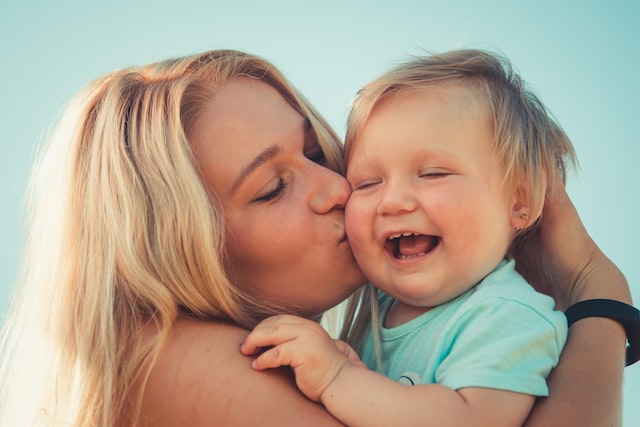Biotin, also known as Vitamin H, is a crucial nutrient for overall hair health. But, is biotin alone enough to combat hair loss and promote hair growth? This question has been a topic of debate for years, with some people claiming biotin to be a miracle cure and others dismissing it as a mere myth. The truth lies somewhere in between, and the answer is not as simple as yes or no.
As hair loss can be caused by a variety of factors, it’s important to understand the role of biotin in the hair growth cycle. While biotin is known to strengthen the hair shaft, it may not necessarily regrow lost hair. So, if you’re considering taking biotin supplements for hair loss, it’s important to understand what you can realistically expect from it and if it’s the right solution for you.
In this article, we’ll dive into the evidence behind biotin and hair loss, exploring the science and real-world experiences to help you make an informed decision. Are you ready to find out if biotin is the answer to your hair loss concerns? Read on to find out.
What is Biotin and How Does it Work
Biotin is a water-soluble B-vitamin that plays a crucial role in various metabolic processes in the body. It is involved in the metabolism of proteins, carbohydrates, and fats, and helps in the production of energy. Biotin is also known as Vitamin H and is part of the B-complex group of vitamins.
Role of Biotin in Hair Health
Biotin is essential for the growth and maintenance of healthy hair. It helps in the production of keratin, a protein that makes up the hair shaft.
Adequate levels of biotin in the body promote healthy hair growth and prevent hair thinning and hair loss. Additionally, biotin supplements are thought to strengthen the hair shaft, making it less prone to breakage.
Evidence of Biotin and Hair Loss
There have been a few clinical studies on the effects of biotin supplementation on hair growth. Some studies have shown that biotin supplementation can improve hair thickness and reduce hair shedding. However, the evidence is limited and more research is needed to fully understand the effects of biotin on hair growth.
Some institutions and organizations that have conducted clinical studies on biotin and hair growth include:
- National Institutes of Health (NIH)
- American Academy of Dermatology (AAD)
- University of Maryland Medical Center
- International Journal of Trichology
- Journal of the American Academy of Dermatology
- European Journal of Dermatology
- International Journal of Women’s Dermatology
There are many anecdotal reports from people who have taken biotin supplements and have noticed improvements in their hair growth and thickness.
While personal experiences can be informative, it’s important to keep in mind that individual results may vary, and biotin may not work for everyone.
Additionally, many people who have experienced positive results from biotin supplementation may also have made other changes to their diet or lifestyle, making it difficult to determine the specific effects of biotin.
How much biotin should be taken for hair loss
The recommended daily dose of biotin for hair loss varies depending on the individual. The National Institutes of Health (NIH) recommends an adequate intake (AI) of 30 micrograms per day for adults.
However, higher doses of biotin supplementation have been used in some clinical studies for hair loss, ranging from 2.5 milligrams to 10 milligrams per day.
Precautions and side effects
Dosage and Toxicity: Biotin is a water-soluble vitamin, which means that any excess biotin is excreted in the urine. However, taking high doses of biotin supplements can interfere with certain laboratory tests, leading to incorrect results. Therefore, it’s important to follow the recommended dosage and consult with a doctor before starting biotin supplementation.
Interactions with Medications: Biotin supplementation can interact with certain medications, including antibiotics and anticonvulsants. It’s important to inform your doctor about all the medications and supplements you’re taking before starting biotin supplementation.
Allergic Reactions: Some people may be allergic to biotin and may experience symptoms such as skin rashes, itching, and hives. If you experience any adverse effects after taking biotin supplements, stop taking them and consult with a doctor immediately.
Pregnancy and Breastfeeding: Biotin is safe for pregnant and breastfeeding women, but it’s always recommended to consult with a doctor before taking any new supplement during pregnancy or breastfeeding.
Overall, while there is some evidence to support the role of biotin in promoting healthy hair growth, more research is needed to fully understand the effects of biotin on hair loss. Additionally, biotin alone may not be enough to address all cases of hair loss, and it’s important to consult with a doctor to determine the root cause of hair loss and develop an appropriate plan of action.






